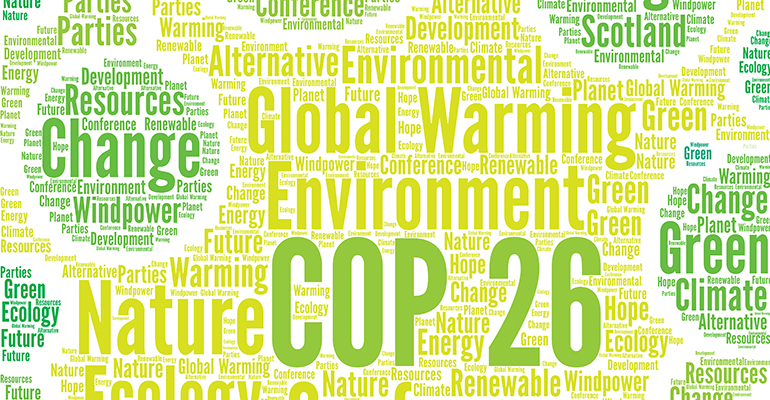Welcome to SJGLE.com! |Register for free|log in

Related Searches: Tea Vitamin Nutrients Ingredients paper cup packing
Welcome to SJGLE.com! |Register for free|log in

Related Searches: Tea Vitamin Nutrients Ingredients paper cup packing
The global food and farming system is a victim of climate change, vulnerable to rising temperatures, flash floods, and periods of drought. However, it is also one of the main polluters, responsible for 60% of global nature loss and over a third of total greenhouse gas emissions – nearly 19 times that of the commercial airline industry, according to environmental non-profit WWF.

This month, the 26th edition of the United Nations Climate Change Conference, known as COP26, was held in Glasgow, Scotland from 31 October to 13 November 2021.
The United Nations secretariat that supports the global response to climate change, UN Climate Change, said COP26 resulted in “significant progress” in both reducing the impact of climate change on the agriculture sector and lowering the sector’s contribution to global warming.
Agreement reached on key topics
Governments considered the outcomes of the last three workshops of the Koronivia road map – a roadmap that aims to address climate change issues related to farming – and found “significant agreement” on all three topics under consideration, for instance.
“At COP26, governments recognized that soil and nutrient management practices and the optimal use of nutrients lie at the core of climate-resilient, sustainable food production systems and can contribute to global food security,” said UN Climate Change in a statement.
“It was also recognized that while livestock management systems are vulnerable to climate change, improving sustainable production and animal health can contribute to reducing greenhouse gas emissions while enhancing sinks on pasture and grazing lands.”
States would continue working on agriculture issues under the United Nations framework Convention on Climate Change (UNFCCC) process and aimed to adopt a decision at COP27 in 2022, UN Climate Change added.
However, the Good Food Institute (GFI), a non-profit that advocates an animal-free supply chain, said food and agriculture issues were under-represented on the COP26 agenda, particularly those relating to animal-based agriculture for meat and dairy.
The Good Food Institute believes that both plant-based and cell-cultured meat and dairy alternatives is a critical tool to limiting world temperature rises to the critical 1.5ºC target.
“We can make the shift necessary to hit our climate targets by giving people better options and making sustainable plant-based or cultivated meat the default choice. These products can provide the meat people want while producing 92% fewer emissions and using up to 95% less land compared to conventional animal agriculture,” wrote Alice Ravenscroft, head of policy at GFI.
WWF: ‘Food production is one of the biggest threats to our planet’
There were some private sector pledges made during the COP26 event.
The UK food industry trade association, The Food and Drink Federation (FDF), which had previously announced its ambition that the UK’s food and drink manufacturers reach new zero emissions by 2040, published a roadmap for this and handbook containing practical advice for food businesses.
Meanwhile, five of the UK’s biggest supermarkets - Tesco, Sainsburys, Waitrose, Co-op and M&S – pledged to halve the environmental impact of a weekly food shop by the end of the decade. They would achieve this by reducing carbon emissions, deforestation, food waste and packaging. The British retailers’ efforts will be monitored by the WWF.
Tanya Steele, WWF’s chief executive said: “We can’t tackle climate change and keep global temperature rise to 1.5C without halting nature loss - and we can’t save nature without changing what’s on our supermarket shelves.”
“Food production is one of the biggest threats to our planet and we will only tackle the climate and nature emergency if food retailers play their part,” she added.
But with global temperatures rising steadily and climate shocks becoming more violent and disruptive to global food producers, are such pledges enough? only if followed through, one could argue – and this is not always as easy as making the pledge in the first place.
Nestlé, for instance, recently had to backtrack on its commitment to source only deforestation-free palm oil by 2020. Instead, it launched a communications campaign, Beneath the Surface, to outline to consumers the complexities of the global palm oil supply chain and explain why it failed to meet its target.
Euromonitor tracks rise of climate certification
Another question is, are consumers willing to pay for climate-conscious food? only if the price premium is reasonable, says Euromonitor.
Despite the attention given to climate-neutral product launches, penetration is extremely low. Euromonitor has tracked carbon-neutral or reduced carbon claims on less than 0.1% of stock keeping units (SKUs) even in Western Europe, which it says is the region with the highest prevalence of such claims. A more positive statistic is that the use of carbon-neutral or reduced carbon claims is on the rise, registering 18% growth in 2020, and product launches have continued throughout 2021.
This year, Danish egg producer Dava Foods reduced the climate impact of its eggs by 50% by swapping the soy in its chicken feed that was sourced from areas linked to rainforest deforestation with climate-certified corn gluten and potato protein. UK-based company Respectful launched carbon-neutral eggs while Germany discounter Lidl made headlines with its carbon-neutral cheese.
Euromonitor analyst and senior consultant David Ingemar Hedin said: “Availability of climate certified eggs is a milestone on the way to making climate-certified complex packaged foods a possibility, as these depend on availability of a wide range of certified ingredients. Climate certified meat and dairy may also soon become a reality.”
E-newsletter
Most Viewed
Latest News
Recommended Products